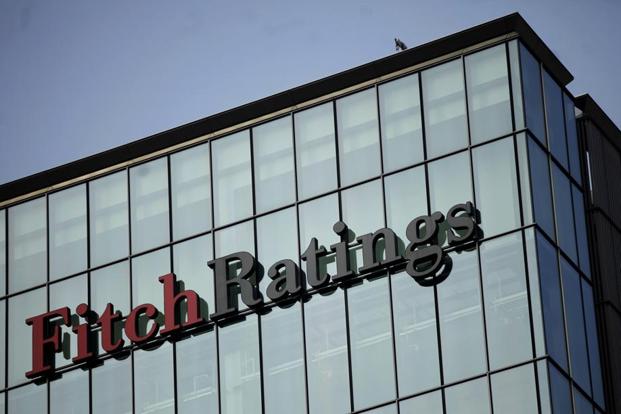December, 10, 2020

Fitch Ratings has downgraded Sri Lanka Insurance Corporation Limited's (SLIC) Insurer Financial Strength (IFS) Rating to 'CCC+' from 'B'. Fitch typically does not apply Outlooks to ratings in the 'CCC' category or below. SLIC's National IFS Rating was not covered in this review.
KEY RATING DRIVERS
The rating action follows the downgrade of the Sri Lankan sovereign rating to 'CCC' from 'B-' on 27 November 2020, which heightened SLIC's investment and asset risks on the international rating scale, and increased the pressure on the operating environment and the insurer's business profile. SLIC's rating continues to reflect its 'Favourable' business profile, and a capital position and financial performance better than that of the domestic insurance industry.
Fitch believes the sovereign's downgrade underscores SLIC's investment risks due to its high exposure to sovereign and sovereign-related investments. Fitch, under our credit-factor scoring guidelines, scores the insurer's investment and asset risk at 'cc' on the international rating scale due to its high 'risky-asset' exposure. SLIC's Fitch-calculated risky-asset ratio was 331% at end-1H20, and we estimate the ratio to have increased to 487% on a pro forma basis following the sovereign downgrade.
We lowered the country's Industry Profile and Operating Environment score after the sovereign rating downgrade, resulting in the lowering of SLIC's business profile score under our credit-factor scoring guidelines to 'b-' from 'b+' on the international rating scale. Fitch continues to regard SLIC's business profile as 'Favourable' compared with that of other Sri Lankan insurance companies due to its leading business franchise, participation in well-diversified and stable business lines, and large domestic operating scale.
SLIC's regulatory risk-based capital ratios of 451% for its life and 203% for its non-life segments at end-1H20 were well above the industry average and the 120% regulatory minimum. Fitch evaluated SLIC's capital score, measured by the Fitch Prism Model, at 'Adequate' on a consolidated group basis at end-2019. We expect the insurer's capital buffers, strengthened partly by its unallocated participating surpluses, to mitigate the impact from any potential investment losses stemming from volatile financial markets as a result of the coronavirus pandemic, although the unallocated participating surpluses declined significantly in 1H20 due to lower market interest rates.
Fitch believes the slowdown in economic activity due to the pandemic will hamper the industry's new business growth. We expect new business generation for life insurance to be subdued in the near term as most insurers use agency networks that rely on human interaction for distribution. We expect non-life business growth to slow in light of the government's restriction on the import of motor vehicles to control currency depreciation.
Fitch expects the potential pressure on earnings from rising price competition, fueled by constrained business growth and softer investment yields, to be somewhat mitigated by lower claims from motor insurance lines due to a drop in traffic accidents following the implementation of pandemic-related travel restrictions. SLIC has consistently maintained its non-life combined ratio below 100% (1H20: 96%; 2019: 95%) for the past five years, buoyed by its scale advantages and prudent underwriting practices.
RATING SENSITIVITIES
The IFS Rating remains sensitive to any material change in Fitch's rating case assumptions on the pandemic. Periodic updates to our assumptions are possible in light of the rapid pace of changes in government action in response to the pandemic, and the speed with which new information is available on the medical aspects of the outbreak.
Factors that could, individually or collectively, lead to negative rating action/downgrade:
- A material adverse change in Fitch's rating assumptions on the coronavirus impact.
- A further increase in SLIC's investment and asset risks on a sustained basis.
- Deterioration in the Fitch Prism Model score to well below 'Somewhat Weak' for a sustained period.
- Significant deterioration in financial performance and earnings for a sustained period.
- Significant weakening in SLIC's business profile.
Factors that could, individually or collectively, lead to positive rating action/upgrade:
- A material positive change in Fitch's rating assumptions on the coronavirus impact.
- A positive rating action is prefaced by Fitch's ability to reliably forecast the impact of the pandemic on the financial profile of both the Sri Lankan insurance industry and SLIC.
- Significant reduction in SLIC's investment and asset risks on a sustained basis.
- Sustained maintenance of SLIC's 'Favourable' business profile; and
- Maintenance of the Fitch Prism Model score well into the 'Somewhat Weak' level on a sustained basis.
BEST/WORST CASE RATING SCENARIO
International scale credit ratings of Financial Institutions and Covered Bond issuers have a best-case rating upgrade scenario (defined as the 99th percentile of rating transitions, measured in a positive direction) of three notches over a three-year rating horizon; and a worst-case rating downgrade scenario (defined as the 99th percentile of rating transitions, measured in a negative direction) of four notches over three years. The complete span of best- and worst-case scenario credit ratings for all rating categories ranges from 'AAA' to 'D'. Best- and worst-case scenario credit ratings are based on historical performance.
Video Story